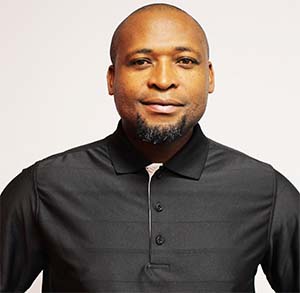As governments are working towards delivering quality services in increasingly complex environments, so Internet of Things (IoT) technology could provide new value for South African citizens, enhance capabilities, streamline processes and better engage partners.
 BBD executive Muzuvukile Matlala highlights how this coincides with President Ramaphosa’s call for a renewed focus on establishing an ICT commission. “The public-sector audience is often very diverse and this can hamper the implementation of new technology. Given the shifting digital reality, the South African government needs to start analysing the implications of the IoT to ensure they’re not left behind, which would make it more difficult to effectively regulate and efficiently deliver services.”
BBD executive Muzuvukile Matlala highlights how this coincides with President Ramaphosa’s call for a renewed focus on establishing an ICT commission. “The public-sector audience is often very diverse and this can hamper the implementation of new technology. Given the shifting digital reality, the South African government needs to start analysing the implications of the IoT to ensure they’re not left behind, which would make it more difficult to effectively regulate and efficiently deliver services.”
Citizens are expecting government to keep up with changing technologies and assist them to more easily face the social changes they face. Devices that are already being used by consumers to make their lives easier and more efficient could be used by government to create greater public value.
“As connectivity becomes less of a challenge, we should expect to see larger African cities implement smart city initiatives. Government plans to have fibre cables in place throughout South Africa by 2020. This will lead to faster and more stable connectivity, so accessing cloud services and the IoT will become easier.”
Matlala elaborates that this could open up innovation for businesses, consumers and government. To meet the ever-growing demands of citizens, who want real-life efficiencies, government would need to look to the IoT and smart city initiatives.
With the varying maturity service levels in government, dealing with a citizen from cradle to grave is challenging. “Ideally all South African adults should have an interconnected e-citizen profile, that could negate the tedium of manual records, while giving government an accurate repository of citizen information. Government agencies such as the State Information Technology Agency (SITA), who work closely with the private sector and business, could play a vital role in making this possible,” explains Matlala.
He adds that the provision of connected services to citizens by a connected government is no longer a convenience but a necessity and catalyst to change the way people live. This would provide a platform for unlocking possibilities to create new economies and improve economic growth.
This then raises the question of the volume of data being generated and how to safely store this information, in the most cost-effective manner. “The South African government’s commitment to IT investment is an encouraging start in seeing how best to incorporate cloud computing into their ongoing IT strategy. Future data centres ear marked for South Africa will play a key role in diminishing costs associated with data storage and also means all data is subject to South African authorities, laws and regulations.”
In conclusion, Matlala believes government needs to start by defining a unified government model and interconnect departments, municipalities and government agencies. Using the IoT and pushing for smart cities in which data is gathered and analysed to gain insights could lead to better efficiency and productivity, bridging the physical and digital worlds.
